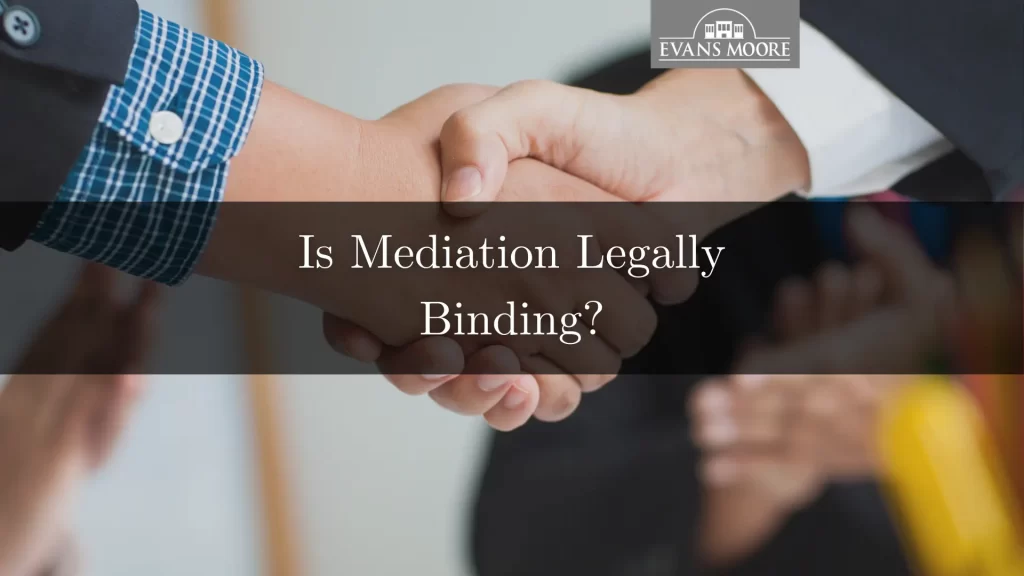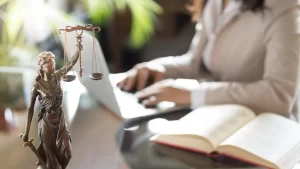
Mediation could be an option if there’s a dispute when reaching an agreement in a personal injury case. In some counties in South Carolina, mediation is required in personal injury cases. Mediation is when a neutral third party helps the parties reach a mutually satisfactory agreement. But is mediation legally binding? No.
The mediator does not decide cases as a judge would. Mediation itself is not binding. However, the resulting settlement agreement is legally binding when both parties sign it. Once signed, the mediation agreement becomes a legal contract protected by law, and the parties must uphold their contractual obligations.
What Is the Role of the Mediator?
A mediator helps settle disputes by guiding both sides to reach an agreement they can live with. Training to be a mediator in South Carolina is rigorous. Taking a civil mediation training program teaches the mediator to assist opposing parties in reaching a mutually acceptable agreement. Everything discussed during mediation is confidential. Mediators must show excellent trustworthiness and ethical behavior.
During mediation, the mediator reviews the evidence from one party to the other. They also hear opening statements from both parties. The mediation process gives the mediator a chance to assess the strengths and weaknesses of both sides of the case.
What Makes the Mediation Contract Enforceable?
The final mediation contract must be enforceable. However, enforceability requires specific things. Both parties must have the ability and desire to enter the agreement willingly. There must be an offer and an acceptance accompanied by consideration.
The terms of the agreement must be clear and without room for interpretation or confusion. A dispute may emerge if the document is vague or hard to understand.
If one party violates the terms of the agreement, the other side can take legal action against that person in court. While mediation may be non-binding during the process, the contract that comes from a successful mediation becomes a legally binding contract once both parties sign the agreement document.
Times When a Mediation Contract Is Not Enforceable
Under certain circumstances, the signed contract may not be enforceable due to several factors. The factors that lead to a contract dispute and lack of enforceability are:
- Lack of Cognitive Ability: When someone cannot understand the terms of the contract, it might not be enforceable. This reduced ability to understand the agreement can be due to age-related cognitive difficulties, mental impairment, lack of mental fitness, or drug or alcohol issues. Lessened cognitive ability can make the contract voidable.
- Signed Under Duress: The mediation agreement can become unenforceable when a person signs the document by physical or mental force. In some cases, the person signing the document may be under undue influence by another individual.
- The Agreement Is Incomplete: Sometimes, the agreement is left unfinished, and sections are left for later completion. Alterations made at a later date may no longer be mutually acceptable. Such additions could lead to a problem with enforcement and a challenge in court if one party fails to uphold the agreement.
- Failure of Consideration: If one party makes an offer and the other party accepts but provides no consideration in exchange, no contract exists.
What Happens If There Is No Settlement in a Washington State Mediation Agreement?
In many cases, mediation is successful, and the parties reach an agreement and settle their dispute. However, in some cases, mediation does not result in a settlement. The case will likely have to go to court for resolution in such circumstances.
Going to Court
The lack of a settlement can end the mediation process, and a judge or jury will decide the case. The verdict might not be the preferred result for either party involved. In addition, the lawsuit, all evidence, testimony, and verdict are matters of public record.
Returning to Mediation
If mediation doesn’t work the first time, and the parties believe they are near to reaching a compromise, they can try the process again later. Reviewing the discussions during the first mediation and determining additional areas for appropriate compromise can produce an agreement at the second session.
Binding Arbitration Might Be Useful
Binding arbitration is an alternative to court litigation, just as mediation is. An arbitrator acts as a neutral third party. Unlike a mediator, the arbitrator makes a final and binding decision after hearing both sides. It’s faster and cheaper than going to court. However, the parties involved have no control over the final decision as they do in mediation.
The Value of Mediation in Personal Injury Cases
 There are several reasons why mediation is preferable to litigation in a personal injury case, such as the following:
There are several reasons why mediation is preferable to litigation in a personal injury case, such as the following:
- Mediation Is Cost-effective: Mediation cuts costs for personal injury cases. It avoids lengthy and expensive court proceedings and reduces attorney’s fees. People can also share the expense of hiring a mediator, making it cheaper for everyone involved.
- Mediation Is Time-Saving: Personal injury cases litigated in court can take a long time. In addition, scheduling the case may extend the timeframe by months or years due to the backup of cases on the court’s calendar. Mediation can end the dispute quickly.
- Maintaining Confidentiality in the Mediation Process: Mediation is private and confidential, making it advantageous for personal injury cases that may require discussing sensitive information. This is especially true when the defendant is a public entity or a business. Liability cases, where a defective product causes harm, are examples of how unfavorable information could cause damage to the defendant’s reputation if the case were tried in public court.
- Control Over the Outcome: Mediation gives parties power over resolving their dispute. They aren’t forced to accept a judge’s ruling as they would be in court. Instead, they work together to find a solution that benefits both sides.
- Flexibility: Mediation allows the parties to develop a unique solution that suits everyone.
Contact Evans Moore, LLC for Help with Mediation
If you have a personal injury case in South Carolina and you’re facing mediation, call the skilled personal injury lawyers of Evans Moore, LLC. Call us at (843) 995-5000 for a free consultation where you can discuss your upcoming mediation with one of our lawyers.
Related posts